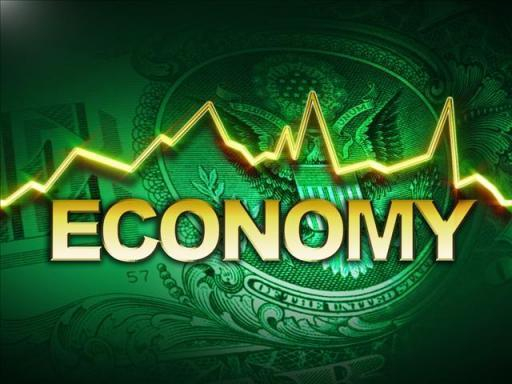Market Data

April 15, 2021
Beige Book: Economic Activity Improves in April
Written by Sandy Williams
Spring has sprung including a bounce in economic activity, according to the latest Federal Reserve Beige Book. The April survey of federal districts showed a moderate increase in activity from auto sales to tourism, along with heightened optimism.

Auto sales rose despite tight inventory and a microchip shortage that has resulted in rolling production shutdowns. Robust growth was reported in the manufacturing sector. Firms, however, continued to report wide-spread supply chain disruption. Residential construction remained strong despite contractors struggling with rising material costs and labor shortages and consumers finding higher home prices and tight supplies of available properties. Nonresidential construction was generally weak, particularly in the hotel, office and retail segments.
Mixed results were reported in the energy sector with coal activity down and oil and gas drilling up slightly.
Employment and wages grew modestly during the period. The pace of job growth varied by industry but was generally strongest in manufacturing, construction, and leisure and hospitality,” said the Federal Reserve. “Hiring remained a widespread challenge, particularly for low-wage or hourly workers, restraining job growth in some cases.”
Truck drivers, as well as specialty and skilled tradespeople, were reported in short supply. Wage increases and signing bonuses were mentioned as incentives to attract and retain workers. Employment increases are expected in the coming months.
Most federal districts reported higher prices with input costs up across the board. Manufacturing, construction, retail and transportation sectors cited higher costs for metals, lumber, food and fuel. Supply chain disruptions, shortages and weather events contributed to higher input costs. Higher selling prices only partially covered input costs.
District Highlights as Reported in the April 2021 Beige Book:
Boston – Economic activity in the First District expanded at a modest to moderate pace in late February and March. Tourism seemed poised for a summer rebound. Two firms enacted large layoffs, but otherwise headcounts were stable or up. The outlook was mostly optimistic, but several contacts expressed growing concerns about inflation.
New York – The regional economy grew at a strong pace for the first time during the pandemic, with growth broad-based across industries. Hiring picked up and wages continued to grow moderately. Consumer spending and tourism picked up noticeably. Input price pressures have intensified, and more businesses are raising their selling prices.
Philadelphia – Business activity picked up to a moderate pace of growth during the current Beige Book period. However, severe supply constraints continued to hamper potential growth from demand described as “on fire,” and activity remained below levels attained prior to the pandemic. Employment ticked up modestly, as wage growth and prices continued at modest and moderate paces, respectively.
Cleveland – The District’s expansion accelerated with a new round of government stimulus and more widely available vaccines. There were even signs of improvement in the hard-hit accommodation and food services sector. Supply chain disruptions spread, however, limiting growth and putting upward pressure on input costs. Looking forward, firms expect the economy to grow robustly in 2021 as supply chain constraints ease later in the year.
Richmond – The regional economy grew moderately in recent weeks. Production increased strongly and importing picked up, leading to high volumes for ports and trucking companies. Consumer spending also picked up. Both manufacturers and retailers faced delays and shortages of raw materials and finished goods. Employment increased and firms looked to fill open positions. On balance, prices rose moderately.
Atlanta – Economic activity expanded at a modest pace. Labor market conditions improved. Some nonlabor costs continued to rise. Retail sales increased. Hospitality and tourism activity strengthened. Residential real estate activity remained strong and home prices rose. Commercial real estate conditions were mixed. Manufacturing activity improved. Banking conditions were stable.
Chicago – Economic activity increased moderately. Employment, consumer spending, business spending and manufacturing production increased moderately, while construction and real estate were flat. Wages and prices rose modestly. Financial conditions were little changed. Prospects for agriculture income in 2021 improved.
St. Louis – Reports from contacts indicate that economic conditions have moderately improved since the previous report. Many contacts cited a faster-than-expected pace of vaccinations for stronger-than-expected activity and an improving outlook.
Minneapolis – The District economy grew moderately, with signs of acceleration. Job openings and employment rose, but unemployed workers faced obstacles in job searches. Construction showed renewed signs of growth, manufacturing continued to increase, and higher commodity prices benefited farmers. Despite improved oil prices, drilling remained subdued. Minority-owned firms reported more financial instability than firms overall.
Kansas City – Economic activity expanded moderately in March, and contacts were optimistic about growth in the coming months. Consumer spending rose moderately as retail, restaurant, auto, and tourism sales increased. Activity also expanded moderately in the manufacturing, professional and high-tech services, wholesale trade, transportation, residential real estate and energy sectors.
Dallas – The District economy accelerated and was boosted by strong growth in manufacturing, retail and nonfinancial services. Activity in the housing market remained robust, and energy activity rose further. Supply chain disruptions led to marked increases in goods prices. Outlooks were more positive and less uncertain than in the previous reporting period.
San Francisco – Economic activity in the District expanded at a moderate pace as labor market conditions improved. Wages and inflation picked up. Retail sales growth accelerated, while activity in the services sector rose slightly. Conditions in the manufacturing sectors strengthened modestly. Residential construction continued to be strong. Lending activity grew further, but loan refinancing tapered somewhat.







